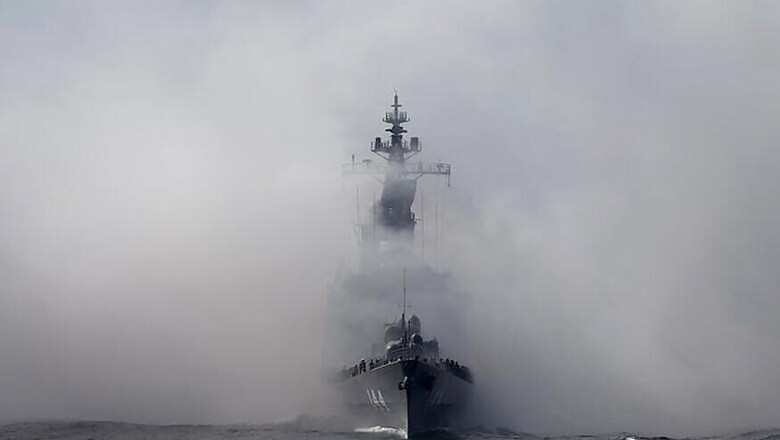
views
Tokyo: Japan's defence ministry requested a record budget on Wednesday, with funds for an anti-ship missile system to defend islands at the centre of a territorial dispute with China.
Tokyo is determined to defend the uninhabited islets in the East China Sea - administered by Japan as the Senkakus but claimed by China as the Diaoyus - as Beijing steps up its claim.
The ministry announced it is seeking 5.168 trillion yen ($50.12 billion) in spending for the fiscal year starting April 2017, up 2.3% from the initial budget for the current fiscal year.
If approved by Prime Minister Shinzo Abe's cabinet, it would be the fifth straight year the government sets a record defence budget, as regional tensions remain high.
The proposed budget calls for Japan to develop land-to-ship missiles as well as air-to-ship missiles for patrol planes.
The new land-to-ship missile system is expected to have a range of 300 kilometres, far enough to reach the vicinity of the disputed islands, the Yomiuri Shimbun daily reported earlier in August.
The ministry declined to confirm the range of the missile. Japanese Foreign Minister Fumio Kishida last week told his Chinese counterpart Wang Yi during talks in Tokyo that Beijing must stop violating Japanese territory in the East China Sea around the disputed islands.
That warning came after Tokyo earlier lodged more than two dozen protests through diplomatic channels claiming that Chinese coast guard vessels had repeatedly violated its territorial waters around the islands.
China views the islands as its own and thus rejects the view it violates Japan's territorial waters.
The ministry also plans to create a mobile amphibious unit with more than 2,000 troops at a base in Nagasaki prefecture. And the budget proposes funds to dispatch extra personnel to the Philippines and Vietnam in an effort to beef up intelligence-gathering in the South China Sea.
Japan is boosting defence ties with the Philippines and other Southeast Asian nations, some of which have their own disputes with Beijing in the South China Sea.
In addition, Japan is also on alert against North Korea and the country's frequent ballistic missile test launches -- the most recent last week from a submarine -- that Tokyo sees as a major threat.
To counter Pyongyang, the budget also allocates funds for upgrading Japan's Patriot anti-missile systems to double the present area of coverage.




















Comments
0 comment